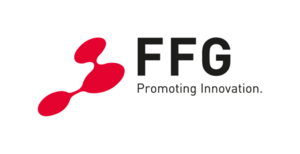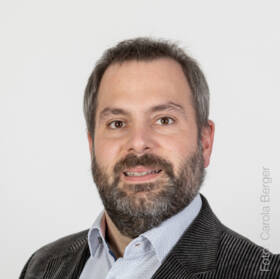Promoting climate-resilient practices in occupational therapy through the use of Extended Reality.
Background
The World Health Organization describes the climate crisis as 'the greatest global health risk to humanity.' Hence, adaptations not only on a global scale are necessary but also at smaller levels, such as in social practices, habits, and everyday actions. Health professionals are increasingly encouraged to consider the impacts of climate change in their daily work and to initiate behavioral changes. Ergotherapy, in particular, can play a key role in this context because it focuses on supporting people's ability to take action. In 2018, a position paper was published that integrated sustainability principles into ergotherapy. However, it remains unclear how these guiding principles can be implemented in practice. In this current project, we are working on one solution.
Project Content
In the GreenTouch project, we help ergotherapists acquire climate competencies they can apply them in their daily work with clients. To teach these skills, we use Extended Reality (XR) technologies. XR is a useful addition to traditional learning methods in education and training. One great advantage is that it allows for the integration of visual, auditory, and tactile stimuli (haptic elements) into training environments. People are immersed in a fictional learning environment where they can play around with different scenarios. XR also makes it easy to evoke emotional reactions, which are helpful in triggering behavioural change.
Goals
GreenTouch pursues five primary goals:
- Co-creative development (involving as many stakeholders as possible) of an XR research prototype that can be used in ergotherapy to teach climate competence through immersive learning.
- Evaluation of the XR research prototype in collaboration with ergotherapists, clients, and other user groups.
- Preparation of a handbook together with all stakeholders involved.
- Development of a didactic concept for additional training programmes.
- Broad communication of research results to stakeholders and other potential user groups.
Methodology
A requirements analysis is conducted. For this purpose, we collect information on the current state of knowledge in areas relevant to the project such as health, climate change, climate communication, XR technology, and ergotherapy. To expand our knowledge base we also conduct interviews with experts in the relevant fields. In the next step, we determine the challenges occupational therapists face in considering the consequences of climate change in their daily work and how XR technologies can help them in doing so. Together with occupational therapists and future users (co-creation) we then develop XR scenarios. Building on this we implement an XR prototype that combines visual, auditory, and haptic interaction. In iterative cycles (i.e., evaluation/improvements/evaluation/further improvements, etc.), the prototype is tested for user-friendliness, practicality, and applicability. A didactic concept, a policy brief, and a handbook for further training measures in occupational therapy and related health professions are developed as well. The project is constantly monitored by ethics specialists to guarantee the highest ethical standards.
Result
GreenTouch draws more attention to climate change, its expected effects on health and provides therapists with a tool to help them address the issue in practice and education. To accomplish this, we take advantage of the benefits of XR learning environments and expand common training opportunities. Climate change has a disproportionate impact on vulnerable groups such as the socially and financially disadvantaged, children, single parents, the elderly, and people with health problems, so their needs must be prioritized. GreenTouch achieves this by involving people from such groups early on, engaging them in co-creative processes and making them heard. We also work closely with users to produce a handbook that satisfies high technical and didactic requirements and makes the project outcomes accessible to a broad audience.
You want to know more? Feel free to ask!
Media Computing Research Group
Institute of Creative\Media/Technologies
Department of Media and Digital Technologies
Publikationen
- IHS Institut für Höhere Studien
- AIT Austrian Institute of Technology GmbH
- Future Minds OG
- IMC Fachhochschule Krems
- in scope GmbH


